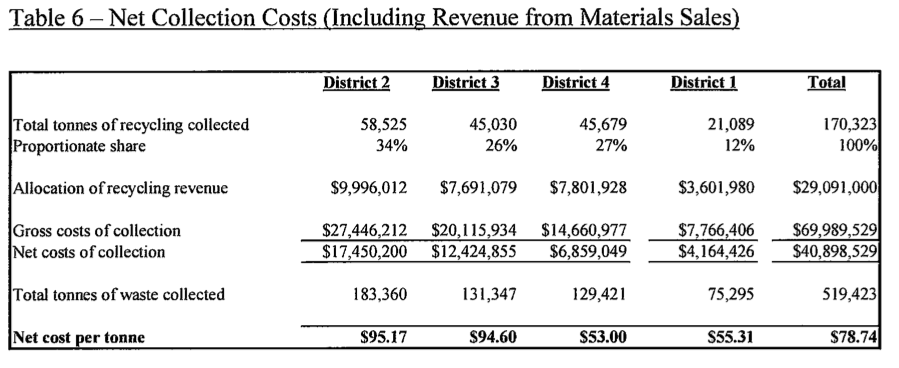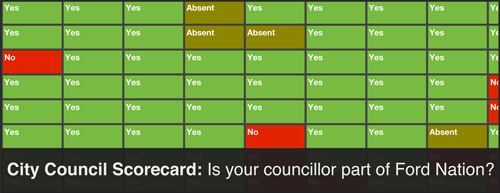Yesterday’s federal election is mostly beyond the scope of this blog, but since the mayor saw fit to involve himself I guess it’s all fair game.
Last night in Canada, the Conservative Party won 167 of 308 ridings, forming Canada’s first majority government in a decade. The Conservatives accomplished this despite seeing very little success in Quebec, long considered the major electoral barrier standing between Party Leader Stephen Harper and his long-desired majority. The difference-maker was, by all accounts, Toronto.
‘Fortress Toronto’ has been breached. The Conservatives won several supposedly ‘safe’ Liberal seats. The kind of seats that have been red since Confederation. Liberal leader Michael Ignatieff was himself defeated in Etobicoke-Lakeshore.
It was a really bad night for the Liberal Party.
Here’s what didn’t happen last night: Rob Ford’s endorsement didn’t make much of a difference. Rob Ford, in his current role as the  Toucan Sam of populist conservatism — selling us cereal that is both healthy and tastes like candy –, did not significantly impact these results.
Further, Toronto did not display its newfound love for all things Conservative. Toronto is not the new Alberta.
So what did happen? Some ill-timed electoral calculus. A split vote like none other. The wave that took the NDP to record heights across Canada had some unintended consequences when it hit Toronto. Our longstanding support for the Liberal Party made for a bedrock group of voters in most ridings who were unwilling to switch to the Orange team. They’re the fortress in ‘Fortress Toronto.’ But enough soft Liberal voters did go NDP to create the perfect conditions for Conservative candidates to take their ridings.
Take Etobicoke Centre for example, where Conservative Ted Opitz was elected. The Cons were up 4% in that riding over their 2008 result. The Liberals were down 8%. The NDP was up 6%. Opitz won by only a handful of votes. In Don Valley East, the Liberals were down 14% while the NDP rose 12%. Etobicoke-Lakeshore, Ignatieff’s seat, saw the Libs down 11 points while the NDP was up 9.
The same trend is evident in a number of other suburban Toronto ridings: The Liberals bled support, a little bit to the Conservatives and a lot to the NDP. Bled just enough to ensure a string of Conservative pluralities across the 416.
If you want to read anything more into the Toront0-area results from last night, start with this: Like they did this past October with George Smitherman, Toronto has once again rebuked the all-things-to-all-people flavourless brand of politics that defines today’s Liberals. Voters don’t want their politicians to be above ideology. Voters crave ideology. They crave character. They want to be inspired. They want to feel like they’re part of something. That they’re standing up for something. That, by supporting a candidate, there’s something to win.

